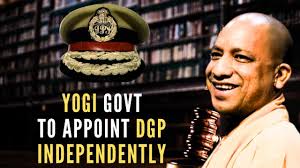NEW DELHI: On the eve of bypolls to nine assembly seats, BJP-ruled Uttar Pradesh is all set to enact a law for the appointment of the state’s Director General of Police at the local level, bypassing the existing Union Public Service Commission (UPSC) process for such appointments.
CM Yogi Adityanath-led state Cabinet has approved Appointment Rules, 2024, which provide for an independent mechanism to select the DGP through a committee headed by a retired High Court judge. The selection committee will also consist of the Chief Secretary, a UPSC representative, Uttar Pradesh Public Service Commission chairman or nominee, Home Department additional chief secretary or principal secretary and a retired state DGP as members.
The new guidelines say that a person, to be eligible for selection, must have six months service left on the date of creation of the vacancy a provision Opposition Samajwadi Party chief Akhilesh Yadav signalled could favour UP’s current acting DGP Prashant Kumar.
“I have heard that arrangements are being made to give a permanent post to a senior officer and extend his tenure by 2 years…The question is whether the person making the arrangement will himself stay for 2 years or not. Is this an attempt to take the reins from Delhi into one’s own hands? Delhi vs Lucknow 2.0,” Yadav said, insinuating tensions between Yogi and Home Minister Amit Shah.
AAP leader Sanjay Singh also said the move indicated that Shah wanted to appoint his DGP and Yogi wanted his own say. Politics apart, UP rules conform to the Supreme Court’s landmark 2006 judgment in the police reforms case filed by retired UP DGP Prakash Singh.
Singh today told this correspondent that the SC had in 2006 itself clarified that its directions on the matter would apply only till the time the Centre or the state enact their own legislation on the subject. “Any state government can make its own law with respect to the appointment of DGP. Until 2006, DGPs were being appointed arbitrarily. In 2006, the SC laid down a procedure whereby states were required to send panels of potential DGP appointees to UPSC, which would return three names to the state government to choose from. This procedure gave dominance to the UPSC in the preparation of the DGP panel as the CM was obligated to choose from the panel the UPSC returned. The new UP rules will give the dominance back to the state,” Singh said, adding that it was a good move because the UPSC system was time consuming and had led to conflicts with states with several states choosing to appoint only acting DGPs (instead of permanent) to bypass the UPSC route.
Uttar Pradesh itself has only appointed ad hoc acting DGPs for three years. Importantly, UP would not be the only state to have a law to appoint the top cop. Punjab, Telangana and Andhra Pradesh already have such laws.


